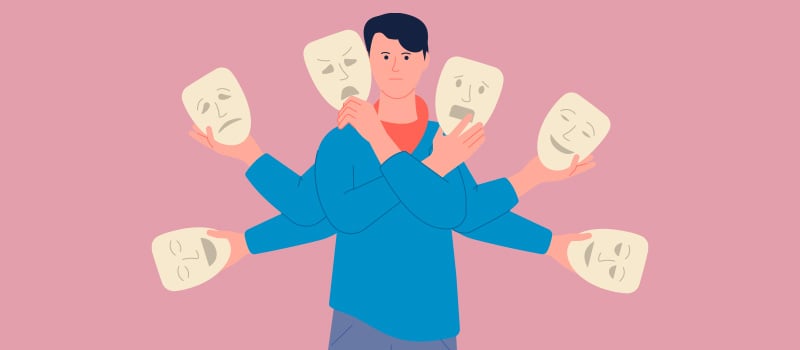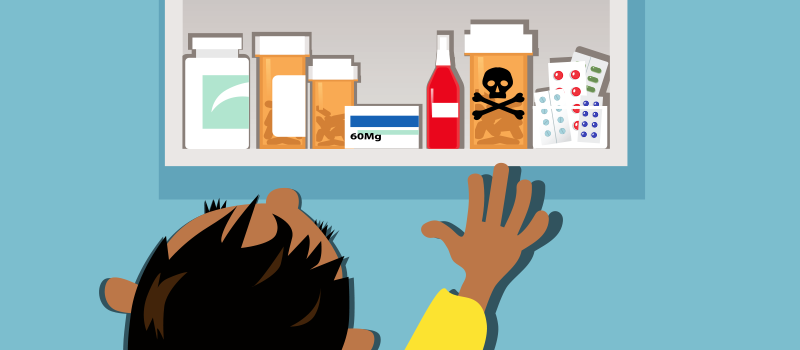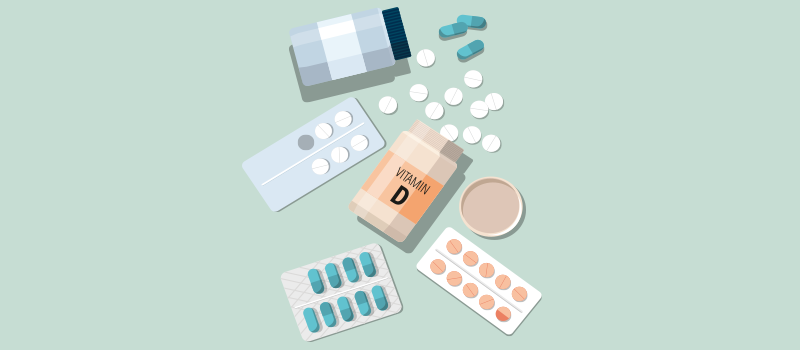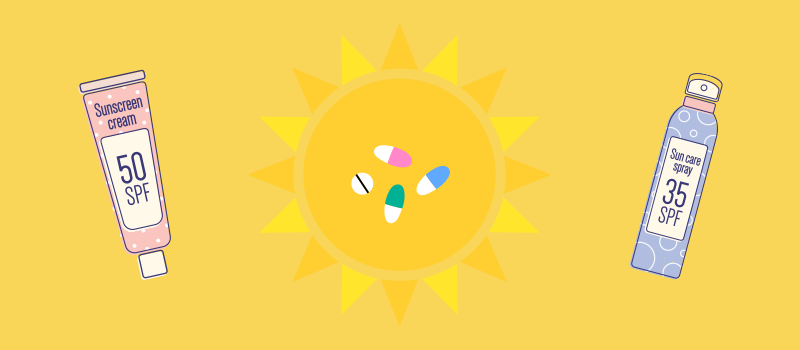What’s the Buzz
The Bee Healthy Blog
What’s the Best Medication for Borderline Personality Disorder?

Borderline personality disorder (BPD) is a mental health condition that severely affects control over emotions and mood. Please continue reading to learn about some of the medications used to treat BPD symptoms.
What are the symptoms associated with borderline personality disorder?
Borderline personality disorder (BPD) is presented differently among people. Some of the signs or feelings that are associated with BPD are listed below. It is worth noting that not all people with BPD experience all of these symptoms.
-
Affective dysregulation or emotional dysregulation — this is defined as trouble controlling emotions and tolerating negative emotional states, leading to an impaired ability to control and act on these emotions.
-
Impulsive behavior
-
Reckless or dangerous behavior, such as binge eating, unsafe sex, spending sprees, gambling, reckless driving, or substance abuse
-
Intense mood swings
-
Inappropriate, intense anger or aggression
-
Quickly changing interests
-
Uncertainty in what they think of themselves
-
An unstable or distorted self-image
-
Intense anxiety
-
Sleep disturbances
-
Feeling empty, unfulfilled, or worthless
-
Feeling dissociated or cut off themselves or observing themselves from outside their body
-
Fear of abandonment
-
Rapidly changing feelings about others, swinging from extreme liking to extreme dislike
-
Unstable interpersonal relationships or difficulty maintaining relationships with others
-
Starting and ending relationships impulsively
-
Viewing things in extremes, such as all bad or all good
-
Self-harm or self-injury with behaviors such as cutting
-
Suicidal thoughts and behaviors
Note: If a person is in immediate danger of self-harm, you should get help right away. You can call the National Suicide Prevention Lifeline toll-free at 1-800-273-TALK (8255) or text HELLO to the Crisis Text Line 741741 or chat on the Lifeline Chat.
How do doctors make a BPD diagnosis?
As mentioned, borderline personality disorder may look different in each individual. The type, severity, and duration of symptoms can vary from person to person. The condition is usually diagnosed in the late teen years or early adulthood. Females are more commonly affected than males. Many people with BPD have experienced early life stress, such as physical, sexual, or emotional abuse.
It can be difficult to differentiate borderline personality disorder from other mental health conditions, such as anxiety disorders, major depressive disorder, post-traumatic stress disorder (PTSD), bipolar disorder, eating disorders, somatoform disorders, mood disorders, and personality disorders.
A mental health professional, such as a psychiatrist, psychotherapist, clinical social worker, or trained counselor, can make a diagnosis of borderline personality disorder based on the guidelines listed in the Diagnostic and Statistical Manual of Mental Disorders (DSM). A diagnosis of BPD is made based on a discussion of the person’s symptoms and medical history, as well as interviews with family and friends. A thorough physical exam is usually done, and other investigations are ordered to rule out other causes of a person’s symptoms.
While BDP are presented with many signs and symptoms, they can be categorized into the following groups:
-
Suicidal behavior or self-harm
-
Unstable emotions and mood swings
-
Intense anger, trouble controlling temper
-
Paranoia, or being out of touch with reality
-
Perpetual feeling of emptiness and fear of abandonment
-
Having a hard time maintaining relationships
-
Impulsive, self-destructive behaviors
-
Unclear self-image
How do doctors treat borderline personality disorder?
The mainstay of treating symptoms of borderline personality disorder is psychotherapy or talk therapy. Evidence-based treatments, such as dialectical behavior therapy (DBT) and cognitive behavior therapy (CBT), can help people with BPD learn healthy coping skills and experience less severe and less frequent symptoms, resulting in better functioning and an improved quality of life. Other treatment strategies may include transference-focused psychotherapy, mentalization-based therapy, or schema-focused therapy.
Do any medications help with borderline personality disorder?
While there are no medications approved to treat borderline personality disorder, and there is no cure for this mental health condition, medications can be prescribed by a mental health professional to treat specific symptoms of BPD or other co-occurring psychiatric disorders.
What are the best medications for borderline personality disorder?
There is no single best BPD medication. There are no FDA-approved BPD medications that can improve the severity of symptoms or cure this condition. As mentioned above, mental health professionals use different medications to manage specific symptoms in people with BPD. Some of the most commonly prescribed medications to people with borderline personality disorder include:
-
Antidepressants like selective serotonin reuptake inhibitors (SSRIs), such as fluvoxamine (Luvox), fluoxetine (Prozac), and paroxetine (Paxil), to manage depressive symptoms.
-
Atypical antipsychotics to manage severe symptoms including psychotic symptoms, impulsiveness, aggression, affective instability, and dysfunction in interpersonal relationships. Examples of antipsychotic drugs used for treating BPD include olanzapine (Zyprexa) and aripiprazole (Abilify).
-
Anticonvulsants and mood stabilizers, such as lithium, divalproex sodium, lamotrigine, and topiramate. These drugs are used to treat affective disorders, instability, impulsivity, and aggression and to improve overall functioning.
Other medications may be prescribed based on a person’s specific symptoms and symptom severity. It is worth noting, however, that not all medications used to treat mental disorders are appropriate for people with borderline personality disorder. For example, anti-anxiety drugs called benzodiazepines (such as alprazolam) are generally not used for treating BPD due to a risk of worsening impulsivity and suicidality. In addition, these CNS drugs (central nervous system drugs) carry a risk of serious side effects, including dependence.
What is the best antidepressant for borderline personality disorder?
Selective serotonin reuptake inhibitors (SSRIs) are used to treat anxiety and depression associated with borderline personality disorder.
Other types of antidepressants, such as tricyclic antidepressants, are less effective and may actually worsen impulsivity, aggression, and suicidal thinking.
Antidepressants called monoamine oxidase inhibitors (MAOIs), such as phenelzine (Nardil) and tranylcypromine (Parnate), are useful in treating depression and controlling impulsivity. Tranylcypromine has been found to improve affective dysregulation and interpersonal sensitivity. These are features seen in borderline personality disorder. In addition, MAOIs also can significantly improve aggression and anxiety. However, MAOIs are not usually well tolerated and can have many potential adverse effects and drug interactions. Therefore, MAOIs are not commonly prescribed to BPD patients.
How do I get my BPD under control and improve my mental health?
Treatment for borderline personality disorder can take a year or longer. It is important to stick with the treatment plan developed by your mental health professional, including attending psychotherapy sessions and taking BPD medications, even if your symptoms do not improve right away after starting BPD treatment.
References:












SOCIAL